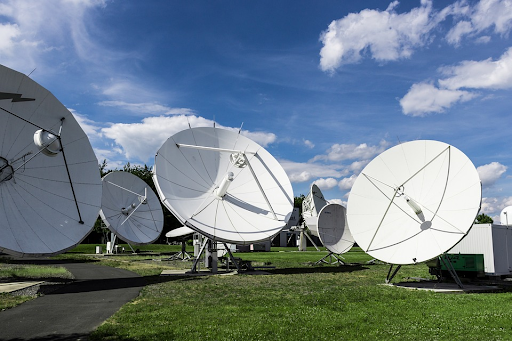Wireless communication has revolutionized the way we communicate, providing us with a convenient and efficient way to communicate with one another. From long-distance video calls to text messages, the world has become a much more connected place. There are many advantages to wireless communication, such as cost savings, flexibility, convenience, portability, and security. Cost savings can be achieved by reducing expenses associated with traditional wired networks, such as installation and maintenance costs.
Wireless communication also provides flexibility, allowing users to access networks from anywhere with a wireless connection. It is also convenient, as it eliminates the need to be tethered to a desk, and it is much more portable than wired networks. Finally, wireless communication offers greater security, as it is much more difficult for hackers to break into a wireless network than a wired network. All of these advantages make wireless communication an attractive option for anyone looking to stay connected in today’s digital world.
What is Wireless Communication?
Wireless communication is the transmission of information over a distance without the use of electrical conductors. Wireless communication is different from wired communication, where communication happens through electrical conductors. Wireless communication may use shortwave radio, microwave transmission, free-space optical communication, satellite communication, or electromagnetic waves in the infrared or ultraviolet spectrum.
The earliest wireless communication systems were based on Morse code that could be sent using a variety of methods, including the use of wireless telegraphy, radio waves, or other forms of electromagnetic radiation. Early wireless communication systems were limited by the distance that electromagnetic waves could travel and the fact that they were unguided.
All forms of wireless communication are used in modern times. Wireless communication allows people to communicate when they are out of sight, such as when they are on a different floor of a building or on the other side of a mountain. It also allows for communication through dangerous or inappropriate conditions, such as in a nuclear reactor or an airplane.
Advantages of Wireless Communication
a. Cost Savings
One of the biggest advantages to wireless communication is cost savings. With traditional wired networks, costs can be reduced by installing fewer network wires. This can save you a lot of money over time, as network cables wear out and need to be replaced from time to time. Additionally, wired networks often require regular maintenance, as cables need to be inspected for damage, repaired, or replaced when necessary. Wireless networks don’t have to worry about cables, as wireless communications are transmitted using radio frequencies through the air. Wireless networks don’t require the same amount of maintenance as wired networks, so you can save money by eliminating maintenance costs and replacing damaged equipment less often. i.e. connection from wireless router through ip 192.168.10.l or default ip address list
b. Flexibility
Wireless communication provides flexibility, as it allows users to access networks from anywhere. This can be particularly beneficial to companies with remote employees, who can now work more efficiently, regardless of where they may be located. It also helps minimize network downtime, since there is no need to repair damaged wires when an issue arises. Wireless networks also offer more flexibility to employees who need to work in different places, as they don’t have to stay tied to a desk with a wired connection.
c. Convenience
Another advantage of wireless communication is convenience. A wired connection between two devices must always stay in the same place; while a wireless connection can easily be moved and repositioned, allowing it to be used from anywhere. This convenience can be particularly helpful for employees who need to work from multiple locations, as they can easily reposition their devices and continue working without interruption.
d. Portability
A third advantage of wireless communication is portability. Wireless devices, such as laptops and smart phones, are extremely portable and can be used anywhere. Wired devices, on the other hand, must remain in one place, and can only be used in the vicinity of the network’s router. This portability is particularly beneficial for employees who need to work from different locations. Wireless communication allows them to move to a different location without having to unplug and replug their devices.
e. Security
Finally, wireless communication offers greater security than wired networks, as it is much more difficult for hackers to break into a wireless network than a wired network. Wired networks are often easier to infiltrate, as they rely on a physical connection. This connection can be exploited by a hacker to gain access to your network. Wireless networks, on the other hand, are transmitted through the air.
This makes it much more difficult for a hacker to gain access to your network, as there is no physical connection to exploit. Wireless communication also allows people to communicate when they are out of sight, such as when they are on a different floor of a building or on the other side of a mountain. It also allows for communication through dangerous or inappropriate conditions, such as in a nuclear reactor or an airplane.








